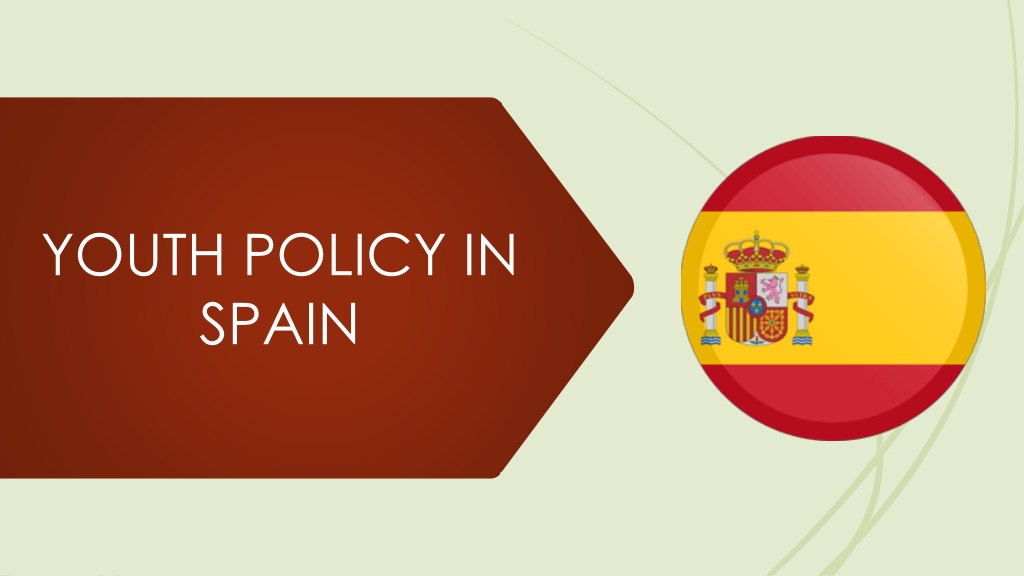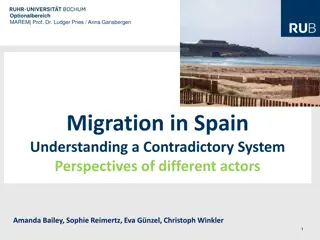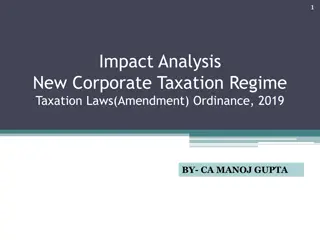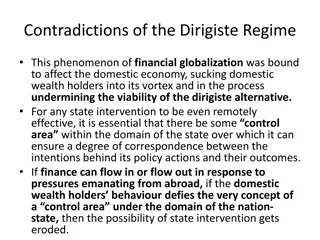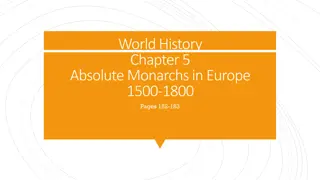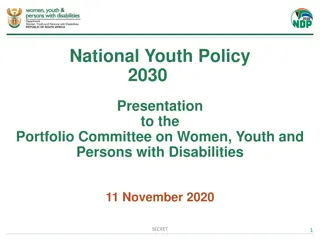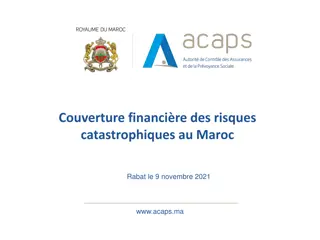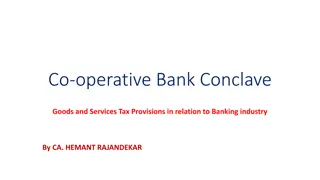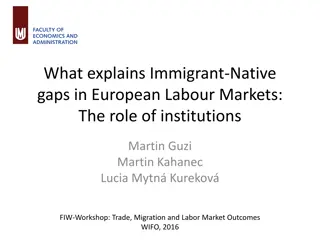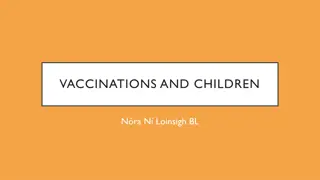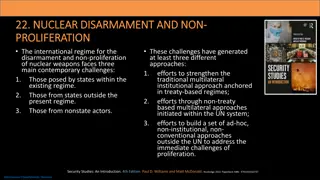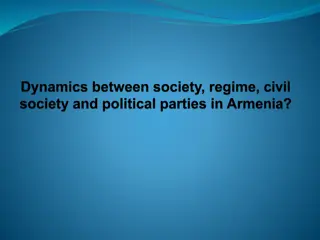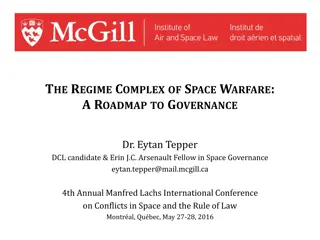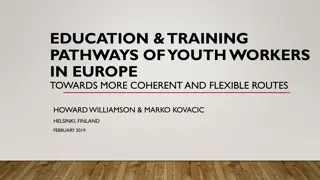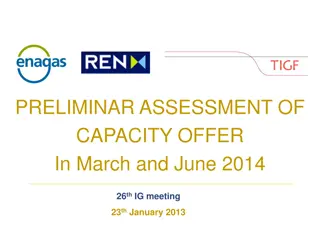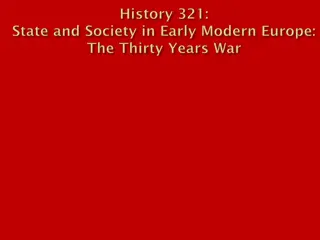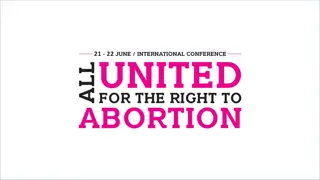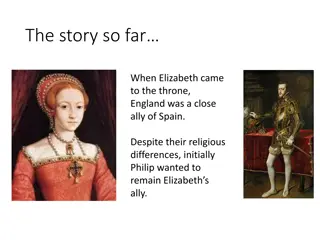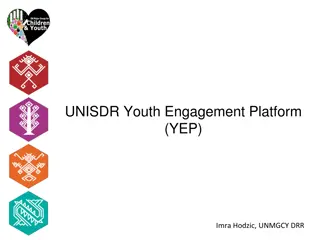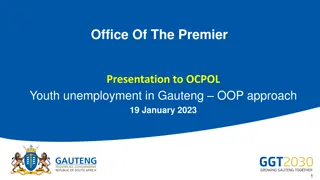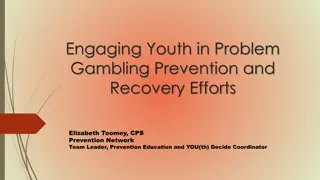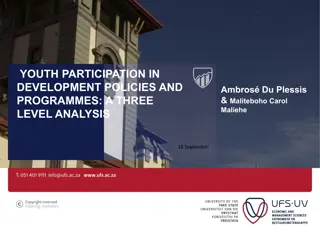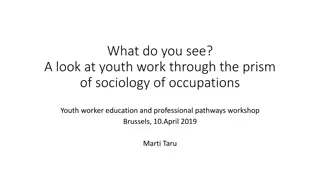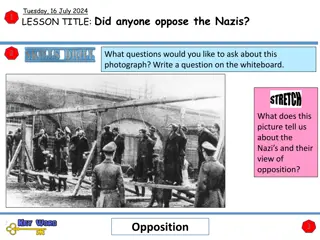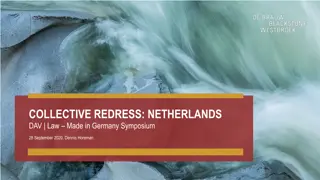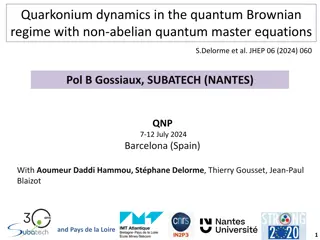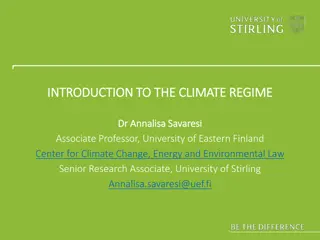Evolution of Youth Policy in Spain: From Franco's Regime to Present Day
The article discusses the evolution of youth policy in Spain from the absence of explicit policies during Franco's regime to the promotion of youth participation in political, social, economic, and cultural development as mandated by the Spanish Constitution of 1978. It explores the decentralization of youth policies in Spain, emphasizing the role of public authorities at different administrative levels. Additionally, it highlights the importance of youth associations and the legal framework supporting their establishment and functioning.
Download Presentation

Please find below an Image/Link to download the presentation.
The content on the website is provided AS IS for your information and personal use only. It may not be sold, licensed, or shared on other websites without obtaining consent from the author. Download presentation by click this link. If you encounter any issues during the download, it is possible that the publisher has removed the file from their server.
E N D
Presentation Transcript
YOUTH POLICY IN SPAIN
WHERE DO WE COME FROM? Franco's regime was characterised by the absence of youth policies, at least explicitly, although certainly during the 40 years of that political system a series of actions were made explicit. the 40 years of that political system, a series of actions were explicitly implemented through the Frente de through the Frente de Juventudes (Youth Front) and the Secci n femenina (Women's Section). and in the 1950s, the Catholic Church, through confessional schools and colleges, defined a model that and schools, defined a model of action towards young people that responded to a particular responded to a certain conception of the role attributed to and the future of young people and therefore young people and, therefore, could be considered as a Youth Policy (Comas, 2007). policy (Comas, 2007). But what is most surprising, and this is an important important novelty that we intend to contribute in this article, the Revista del Instituto de la Juventud (1965/1978), despite being dependent on the Secretaria General Secretariat of the Movement (until issue 33 of February 1971, when it became part of the Institute of Political Studies). the Instituto de Estudios Pol ticos), never dealt with the issue of youth policies in the Franco regime.
According to Article 48 of the 1978 Spanish Constitution (Constituci n Espa ola de 1978) Public authorities will promote conditions for the free and effective participation of youth in the political, social, economic and cultural development . Therefore, public authorities must develop youth policies as it has been done for the last forty years. Spain is a decentralised country; besides the Central Government (the General Government Administration being its administrative apparatus), there are two other political-administrative levels: On the one hand, 17 Autonomous Regions and two Autonomous Cities (Ceuta and Melilla); they all rely on an Autonomous Government, an Autonomous Administration, a directly elected Autonomous Parliament and, above all, a referential policy framework set by the Statute of Autonomy approved from 1979 onwards. Last, on a third level, Local Authorities and Provinces (another regional division) should be taken into account, as these are also empowered
Youth PolicyThe article 22 of Spanish Constitution of 1978, and the Organic Law 1/2002 of 22 march, ( BOE 073 de 26/03/20002), regulates the right of association, stresses and recognises the importance of the associative phenomenon as an integration into society instrument, and sets forth that the public authorities must encourage the constitution and development of associations as well as offer advice and technical information to those involved in associative projects. The Law regulates the establishment and functioning of associations, the rights and duties of members, the registration in the Associations Register (national or autonomous community) and the support measures provided by the public administrations.
Where are we? Youth policy studies today At present we find ourselves in a scenario in which, although there are significant contributions in youth policies, these are not abundant nor do they cover the different needs of this sector, with a greater tendency towards practice and action than towards theorisation and reflection. The study carried out by Comas (2007) shows that documentary productivity in the field of youth policies hardly deals with analysis and reflection on these policies. The protagonists of youth policies, apart from young people, have mainly been youth activists, youth technicians, youth informers, monitors and educators and, contrary to what would be desirable, these professionals, despite their abundant practice and experience, are not in the habit of publishing and carrying out theoretical studies and analysis of youth policies. This is precisely one of the pending challenges in this sector. For this reason, one of the most important sources of documentation on the evolution of youth policies is to look beyond scientific publications and studies published in different formats and by different institutions. There is certainly a lot of documentation that is not very accessible in Cabue es and CEULAJ, as well as in the proceedings of the congresses, conferences, seminars and meetings that have been and are organised every year throughout Spain.
Over time, through these events, it will be possible to follow the concerns, discomforts, new approaches and challenges that nurture and encourage policy, new approaches and challenges that have nurtured and encouraged youth policies in Spain over the last three decades. in Spain over the last three decades. They are documents with a technical, methodological and descriptive profile of youth experiences and programmes. descriptive of youth experiences and programmes. In some cases, this documentation is documentation is difficult to detect and consult. Despite this analysis of the production of studies on youth policies, the work carried out by some institutions must be recognized. Despite this analysis of the production of studies on youth policies, the work carried out by some institutions must be acknowledged. Firstly, the contribution of the Instituto de la Juventud (INJUVE). At Specifically, it is worth highlighting two issues of the journal Estudios de Juventud which have dealt monographically with studies on youth policies, issue 59, coordinated by R. Mart nez, and issue 94, coordinated by D. Comas. Both issues provide a selection of documentary references on youth references on youth policies that are worth considering. More Beyond this journal, there is relevant documentation in the INJUVE Studies collection, most of which are collection of INJUVE, most of them cited throughout this article.
Youth Policy Governance According to the Spanish National Statistical Institute (INE) data, Spain has an estimated population of 47.329.981 people [i] in 2020, of those 7.296.779 are youth, roughly the 15,41%. Of these people, Spanish policies and public organisations consider those between 15 and 29 years of age as youth.
Funding Youth Policy On a national scale the Youth Strategy 2020 establishes several actions plans, the last one to be implemented was the Action Plan 2014-2016 (Plan de Acci n 2014-2016), which established a budget of 2.9 thousand million euros in 211 measures in the different Axes of Action of the Strategy . From this amount, over 90% of the budget was been allocated to youth employment and entrepreneurship support. This is a specific budget focused in the first Action Plan. Besides these Plans, there is an ordinary budget for the Youth Promotion and Services (Promoci n y Servicios de la Juventud), from the Ministry of Social Rights and 2030 Agenda of 32,9 million euros (Spanish National Budget 2018 Presupuestos Generales del Estado 2018). With an increase in the budget of 6.54% compared with the previous year 2017, that was funded with 30.9 million euros. Nevertheless, on 28 October 2020, the Draft State Budget for 2021 was presented to the Cortes Generales and its adoption is still to be voted in the following weeks, so the budget that will be assigned to the promotion of youth policies in Spain remains unknown.
Use of EU Funds In the year 2017, Spanish Administration participates of the following funds according to European Budget: Erasmus + funded with 174,6M . Is the European program of the EU that supports the training, sports, education and youth efforts for the period 2014-2020. Youth Employment Initiative with a budget of 28,3M (2016, no data available for 2017) designed to support young people who are not in employment, training or education in regions with an unemployment rate above 25%. Creative Europe Program with a financial support of 7,3 M focused in emerging creators and artists in an Europe-wide program.
Cross-Border Cooperation Participation in the European Steering Committee for Youth (CDEJ) that creates a space of cooperation between the responsible personnel of the bodies focused on youth matters and the representatives of ministries with youth competences. The CDEJ was set to boost cooperation between governments in the youth area. Also, the committee offers a framework to compare the different youth policies of the participants. Besides all these international agreements, it has to be taken into account that the Autonomous Regions also carry out cooperation and external actions. Like the participation of the Youth Institute of Extremadura (Instituto de la Juventud de Extremadura) in the Eurodesk program with a local information office. Or the participation of the Andalusian Youth Institute (Instituto Andaluz de la Juventud) in European programs like the Eures or the Europass.
YOUTH COUNCIL OF SPAIN The Spanish Youth Council is an autonomous body created by law in 1983, attached to the Ministry of Health, Social Services and Equality, in which youth organizations from all over Spain and regional Youth Councils are represented. Its objectives are to promote youth participation and associationism, to represent Spanish young people and to convey the proposals and concerns of young people to the public authorities and public opinion. It also provides services and support to youth organizations. They develop Art. 48 of the Constitution in the field of youth. The Spanish Youth Council is the Spanish representative in the European Youth Forum (YJF).
STRUCTURE OF THE YOUTH COUNCIL Its structure is based on a General Assembly that meets every two years, in which all its members participate, and whose functions are the control of the tasks carried out, the design of the lines of work and the election of the members of the Permanent Commission. Meanwhile, the highest decision-making body is the Executive Assembly, which has one representative from each entity. The Permanent Commission is responsible for the daily work of the Spanish Youth Council, as well as the coordination of the Specialised Commissions and the representation of the CJE before the institutions.
STRUCTURE OF THE YOUTH COUNCIL The Specialised Commissions are responsible for preparing specific documents and proposals. There are currently six: Socio- economic, Participation and Non-Formal Education, Formal Education, Rights and Equal Opportunities, Quality of Life and the International Relations Committee (CRI). There is also an Executive Assembly which is responsible for ensuring that the agreements of the General Assembly are implemented.
STRUCTURE OF THE YOUTH COUNCIL At present, its Standing Committee is composed of: President: Elena Ruiz Cebri n Federaci n de Asociaciones de Asociaciones de Scouts de Espa a (Scouts Espa a) Vice-president: Margarita del Cisne Guerrero Calder n J venes Izquierda Unida (Izquierda Unida Youth) Vice-president: Adri Junyent Mart nez Adri Junyent Mart nez Young Comisiones Obreras (Workers' Commissions) Secretary: Xabier Triana G mez Consell Valneci de la Juventut (Valencian Youth Council) Internal Coordination: Ricardo Bl zquez Fern ndez Socialist Youth of Spain International Relations: Eduardo Alonso Arechaga Youth Council of Navarra Treasury: Juan Enrique Gallo Gonz lez New Generations of the Popular Party (Nuevas Generaciones del Partido Popular) Vocal: Ana Collados Mateos Catholic Scout Movement (MSC) Vocal a: Kauzar Laasri Mohamed Youth Council of the Autonomous City of Ceuta ELENA RUIZ CEBRI N
MEMBER ORGANIZATIONS There are three degrees of participation: Agreed Youth Organisations (without voice or vote) Observer Youth Organisations (with voice, but without vote) Full Youth Organisations (with voice and vote). The full-fledged organisations are Autonomous Youth Councils (those of all the Autonomous Communities and Cities, except for the Consell Nacional de la Joventut de Catalunya, and those of the Canary Islands, Community of Madrid, Ceuta, Melilla and Cantabria, which do not currently exist) and several state-level youth organisations.
Current Debates and Reforms In Spain, these are the main debates: The debates from the Youth Strategy 2020 involve different scopes like the European perspective of the youth policies; the youth from the point of view of the administrations; the emancipation challenges; equality policies; participation, volunteering and cooperation; lifestyles, leisure and free time; culture, youth creation and ICT; youth in Spain, values and principles. Through the scope of the Congress of Deputies the political debates regarding the Strategy 2020 took place exclusively in the X Legislature (2011-2016). The discussion took place around two written questions to the Government and one non legislateive proposal from the Socialist Parliamentary Group. The first question focused in the need to maintain Spain in line with the ideas of the Strategy on sustainable and inclusive growth. The second question was done in order to know the status of the National Social Report required by the European Commission in the framework of the Strategy 2020. Finally, the Non-legislative proposal was launched to guarantee the accomplishment of the objectives of the Strategy on social inclusion and fight against poverty. The youth situation is another debate in the Congress of Deputies in the XII Legislature (2016- present).
Current Debates and Reforms The Popular Party (PP) Parliamentary Group based on the importance of the youth for the future of the country, and following the main lines of the Youth Strategy of the European Union, made a Non-legislative proposal to introduce a youth perspective in all the public policies, and an analysis of the youth impact. The Socialist Parliamentary Group (party that currently governs together with the Unidos Podemos party, forming the first coalition government in the history of Spain) requested the creation of a Sub-commission in the Committee on the Rights of Children and Adolescents abouth the Youth in Spain, based in the risks that the youth faces, like higher poverty rates and difficulties to enter the labor market. Concerning the work of the committees the Federal Parliamentary Group Unidos Podemos-En Com Podem-En Marea, the Socialist Parliamentary Group and Citizens (Ciudadanos) Parliamentary Group inquired the appearance of experts, authorities, members of the Government and civil servants in different Committees, to speak about youth on gender equality, the main problems of the youth population on the labour sphere, the access to housing, youth poverty, youth disability, European plans on youth, education.
REFERENCES http://www.injuve.es/sites/default/files/2017/46/publicaciones/revist a110_9-estudios-politicas-de-juventud-en-espana.pdf http://www.cje.org/ca/que-es-cje/estructura/ https://national- policies.eacea.ec.europa.eu/youthwiki/chapters/spain/1-youth- policy-governance http://www.injuve.es/sites/default/files/2018/27/publicaciones/sond eo_2017-1_informe.pdf http://www.injuve.es/sites/default/files/JCifras-Valores-Dic2010.pdf https://es.wikipedia.org/wiki/Consejo_de_la_Juventud_de_Espa%C 3%B1a#:~:text=El%20Consejo%20de%20la%20Juventud,y%20Consej os%20de%20Juventud%20auton%C3%B3micos http://www.injuve.es/sites/default/files/politicas_de_juventud_impre nta.pdf
